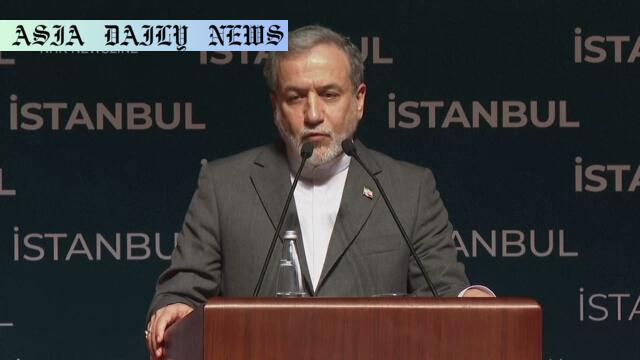Retaliation – Tehran appears to be mulling potential retaliation after the US attacked its nuclear sites.
- Iran is considering its response options after US strikes on its nuclear sites.
- Possible responses include closing the vital Strait of Hormuz maritime route.
- Iran has already launched missiles at Israel as part of its initial reaction.
- Concerns over radioactive contamination have been dismissed by international agencies.

Iran’s Response to US Strikes on Nuclear Sites
Tensions between the United States and Iran reached a critical point after the recent US strikes on Iranian nuclear facilities. Tehran now faces the daunting decision of how to retaliate. This episode marks a significant escalation in an already strained relationship between the two nations. From potential military action to economic disruptions, Iran is reportedly considering various avenues for its response. This decision comes amidst increasing volatility in the region, with Israel embroiled in the fallout following Iranian missile launches.
The attack on nuclear sites, as confirmed by Iranian officials, led to minimal radioactive contamination, an immediate concern for the international community. The International Atomic Energy Agency (IAEA) stated that no increase in off-site radiation levels has been reported, further assuaging fears of environmental consequences. However, Iran alleges this act is both an affront to its sovereignty and an attack on global stability, given the region’s geopolitical significance.
Potential Closure of the Strait of Hormuz
One of the primary avenues Iran has not ruled out is the closure of the Strait of Hormuz, a critical chokepoint for global oil transport. Iranian Foreign Minister Abbas Araghchi emphasized that while diplomacy should always remain an option, the immediate circumstances demand serious countermeasures. Blocking the strait would have enormous repercussions for global energy supplies, potentially escalating the crisis to catastrophic levels.
This proposal signifies that Iran’s strategy centers on leveraging its geographical and geopolitical heft. Many international voices, including those in the US and its allies’ circles, are warning Tehran of the devastating consequences if this action is pursued. Yet, each passing moment of inaction risks the possibility of Iran seeing it as a viable course of action.
Missile Strikes on Israel: An Immediate Response
As a direct reaction to the US strikes, Iran launched multiple missiles toward Israeli targets. The severity and implications of these actions cannot be understated. While Iran portrayed the missile launches as a measured and appropriate response, analysts are deeply concerned about the broader implications of this escalation. Israel, seeing the strikes as calculated aggression, has intensified its alignment with the US, with leaders like Prime Minister Netanyahu commending US President Trump’s actions as strong leadership.
This emerging trilateral dynamic between the US, Israel, and Iran hints at the complexity of relationships and the high-stakes diplomacy required to navigate through the crisis efficiently.
Global Concerns About Escalation and Future Perils
Governments and international organizations have raised alarms regarding the situation’s escalation. The prospect of further military engagement could potentially plunge the region into chaos, with ramifications spanning far beyond the Middle East. Iran’s nuclear program remains a contentious issue in international diplomacy, with countries like Russia and China reacting cautiously to developments.
Leaders of the international community emphasize the need for restraint and immediate diplomatic dialogue. Still, with emotions running high, navigating these waters will undoubtedly prove challenging. Trust, meanwhile, remains at an all-time low between the conflicting parties.



Commentary
The Ripple Effect of Iran-US Tensions
The current standoff between Iran and the US carries implications that go well beyond the immediate military actions. For one, the closure of the Strait of Hormuz, even as a negotiation tactic, could destabilize oil markets and economies worldwide. Major powers and regional actors alike would need to weigh their approach strategically, balancing diplomatic engagement and defensive measures to deter further escalation.
Balancing Power in a Volatile Region
The Middle East has long been a hotbed of geopolitical contest, and the events surrounding the Iran-US conflict reaffirms the precariousness of peace in the region. Iran’s missile strikes on Israel not only serve as a warning shot against perceived aggression but also solidify its position as a nation looking to assert power in an increasingly multipolar world. This assertion, however, places millions of lives at risk in areas that might become ground zero for further escalation.
The Role of Diplomacy
It is imperative to view diplomacy not as an alternative but as a necessity in de-escalating tensions in the Middle East. Abbas Araghchi’s statement that the diplomatic door should always remain open should resonate among leaders and policymakers across the globe. It’s crucial that instead of fanning the flames, nations find ways to address grievances through mutual understanding, collaboration, and sustained negotiations.
In conclusion, the ongoing conflict must serve as a reminder of the catastrophic consequences of miscalculation and aggressive policies. Only through restraint, dialogue, and international cooperation can a crisis of this magnitude be averted. In this volatile time, choosing diplomacy over warfare is not just a strategy but a necessity for preserving global stability.